Over the past 33 years, Prof Iu Vai Pan has contributed to his birthplace Macao in many different roles: he became the first assistant professor of civil engineering at the University of East Asia (UEA), the predecessor of the University of Macau (UM), in the late 1980s, took over as the university’s rector in 1999, and has been exploring a new model of residential colleges since 2010. He did not have a long-term career plan at the outset, but now, looking back over three decades, he has laid the foundation for the development of the university with every step he has taken.
The First Assistant Professor of Civil Engineering at UM
In 1975, after graduating from the Choi Ko Middle School in Macao, Iu went on to pursue undergraduate studies in the Department of Civil Engineering at the Hong Kong Baptist College (now the Hong Kong Baptist University), before travelling to the United Kingdom to pursue a master’s degree in structural engineering at the University of Southampton. He received his PhD in Civil Engineering from the University of Hong Kong (HKU) and went on to do post-doctoral research at the University of Calgary, Canada. ‘After completing my post-doctoral research, I found a research job with the National Nuclear Corporation in the UK, which mainly focused on the study of the effects of explosions on the structure of nuclear power plants, a very interesting topic,’ he says. ‘Unfortunately, I was unable to do so due to work permit problems, so I returned to HKU to do research. Then I heard that UEA was planning to launch an engineering programme, so I returned to Macao and applied for the job.’
Prof Iu returned to Macao in 1988 to join the Polytechnic College at UEA, where he taught computer science and was invited by then vice rector, Prof Li Tianqing, to sit on the installation committee for developing a civil engineering programme. In 1989, the Faculty of Science and Technology was established, and a four-year Bachelor of Civil Engineering degree programme was launched. Prof Iu began teaching civil engineering as the university’s first assistant professor in the field and the first coordinator of the programme, which attracted a dozen students. ‘I can’t say that I was actively planning anything for the university in the process, I just felt that my knowledge could be put to good use, so I agreed to be a pioneer,’ says Prof Iu.
‘I taught my first class of civil engineering students for four years until they graduated, and after spending four years together, we grew very close,’ says Prof Iu. Among the first batch of graduates he taught, some stayed at the university as teaching assistants while studying for a master’s degree, but he encouraged them to leave. ‘To put it crudely, I wanted to kick them out,’ he explains. ‘It’s not because I thought our university was not good enough, but because I wanted them to study elsewhere so they could broaden their horizons, experience different cultures, and become more open-minded,’ he says. Back then, many students were encouraged by Prof Iu to study in overseas institutions, and several of them eventually returned to Macao to become his colleagues.
Succeeding as UM’s Rector
In mid-1999, when the then rector, Prof Zhou Ligao, was reaching retirement age, the Portuguese Macao government was considering candidates for the next rector. One day, UM Vice Rector Prof Rui Martins called him and told him that Dr Jorge Rangel, then secretary for public administration, education and youth, wanted to meet him. Prof Iu thought it was about something else, but when they eventually met, Dr Rangel told Prof Iu that he wanted to recommend Prof Iu as the next rector of the university and asked what his plans would be for the university after he took office.
Unfazed by the unexpected appointment and, in his heart of hearts, also feeling it was a rare opportunity, Prof Iu confidently shared his thoughts on the future development of the university during the short meeting with the secretary.
In August 1999, at the young age of 42, Prof Iu was inaugurated as the new rector of the university at the inauguration ceremony for the 1999/2000 academic year. He opened his inauguration speech with a quote from Sir Isaac Newton, which struck a chord with those present: ‘If I have seen further than others, it is by standing on the shoulders of giants.’
Prof Iu believes that engineering has trained him to think logically and to see that things have to be constructed step by step. ‘What others have done before me is very important, and I have my own direction, but it must be done step by step,’ he says. ‘There must be a foundation, and we have to understand what is feasible and what we have to establish before we can proceed further. In the establishment and development of a university, nothing is achieved overnight. Everything takes meticulous planning, down to the last detail.’
Enhancing the Faculty Team and Recruiting Outstanding Students
One of Prof Iu’s priorities during his tenure was to raise the quality of the faculty team. When he took over as the rector, only about 40 of the university’s 200 faculty members had PhDs, but he believed that for the university to make progress, the priority was to raise the qualifications of faculty members. ‘We could either hire new people or train current faculty members, and I thought we should do both,’ says Prof Iu. ‘So we raised academic requirements in the recruitment process, while at the same time providing opportunities and support for our colleagues to study for a PhD. Only when our faculty members have a better academic foundation can we provide better-quality education and produce better-quality research results. A tall building begins with a good foundation.’
Prof Iu also places great emphasis on attracting outstanding students in the hope that this will encourage other students to strive for excellence. ‘Some students might think that they were doing well, but then they found out that there were students at the university who were more diligent, which fosters learning culture for other to follow and to achieve better results.’ So he continued the Principals’ Recommended Admission Scheme, which had been launched by Prof Iu’s predecessor Prof Zhou Ligao during the last year of his tenure. Under this scheme, outstanding high school graduates in Macao could apply for admission to the university with exemption from the entrance examination upon recommendation from their school principals. ‘Fortunately, during my nine years as the rector, the number of local secondary school graduates increased, which enabled the university to recruit more outstanding students, but it also meant that competition for admission to the university became increasingly fierce.’
In December of the same year, a few months after Prof Iu took over as the rector, Macao was reunited with the motherland. Since then, the university has been allowed to admit students from the mainland, a few provinces, and cities at first, and gradually gaining approval to recruit from all provinces, cities, and autonomous regions. ‘In the first two or three years after the handover, we required candidates to reach the admission scores of second-tier universities in the mainland,’ says Prof Iu. ‘Around 2002 and 2003, I proposed applying the admission scores of first-tier universities in recruiting mainland students. Later, some of our programmes raised the bar further. This shows UM’s leading position in the higher education sector in Macao.’
Juggling the Dual Roles of Rector and Professor
For seven years during his tenure as the rector, from 1999 to 2008, Prof Iu continued teaching undergraduate and postgraduate courses and supervising postgraduate students. ‘According to the Charter of the University of Macau, the rector may be exempt from teaching unless he or she offers to do so. I chose to interpret this statement in a positive way, as a reminder that I could continue to teach,’ says Prof Iu. ‘I was 42 years old at the time, and I felt that I would not remain a rector for the rest of my life and that I had to continue teaching. Moreover, if the university’s leadership, such as the rector and the faculty deans, continued to teach, they would stay in close contact with the students and would be able to understand the thoughts and ideas of frontline teachers, which would help them formulate better development policies for the university.’
However, for Prof Iu, the greatest motivation to keep teaching is the joy he derives from it. ‘The joy of teaching is like the joy a parent feels when nurturing their children, and I didn’t want to lose that joy,’ he says. ‘As the rector, I got tired from time to time when I had to deal with a lot of administrative work, so it was good to get away from work and go to the classroom. It helped restore my inner equilibrium.’
Appointed as the Master of a Residential College
After retiring from his post as the rector, Prof Iu continued to teach civil engineering. In 2010, he served as a visiting scholar at the University of Cambridge in the UK for six months. At the time, UM was preparing to launch a residential college system on a trial basis, so Prof Iu took the opportunity to experience the atmosphere and the operation model of residential colleges at Cambridge. After returning to UM in August of the same year, he applied to be the founding master of the East Asia College (now the Stanley Ho East Asia College)
On the day of our interview, Prof Iu explained the ideas behind the college’s emblem, which he had put a lot of thought into designing. ‘Our emblem has a bridge that symbolises the link between Eastern and Western cultures,’ he says. ‘The waves represent the university’s location in the waters of East Asia, and the Chinese character ‘雧’ refers to a flock of birds gathered on a wood, embodying the idea of the college’s community life.’ Looking back on his 11 years of living and teaching in the college, he sees the college as a learning community that provides opportunities for students to learn about themselves and the world. ‘I can be close to the students, witness their growth at close range, and see their learning outcomes in many different ways,’ he says.
He believes that a residential college fulfils its educational purpose in three steps: knowledge, practice, and attitude. The first step is to give students knowledge; the second step is to give them the opportunity to put knowledge into practice, and the final step is to help them internalise the values they have learned as part of themselves.
‘The University Is Part of Me.’
The year 2021 marks the 40th anniversary of the university’s founding and the 39th year of Prof Iu’s teaching career, of which he has spent 33 years at the university and has long considered it his home. ‘UM is the closest place to my heart,’ he says. ‘I won’t say that I’m part of the university, because the contrary is true—I feel like the university is part of me. It is impossible to separate my identity from what I have experienced in the past four decades and what I have done here. Whether the university is called the University of East Asia or the University of Macau, whether I am a professor of civil engineering, the rector or the master of a residential college, my most distinguishing identity is simply that I am a member of this university.’
Source: My UM e-version
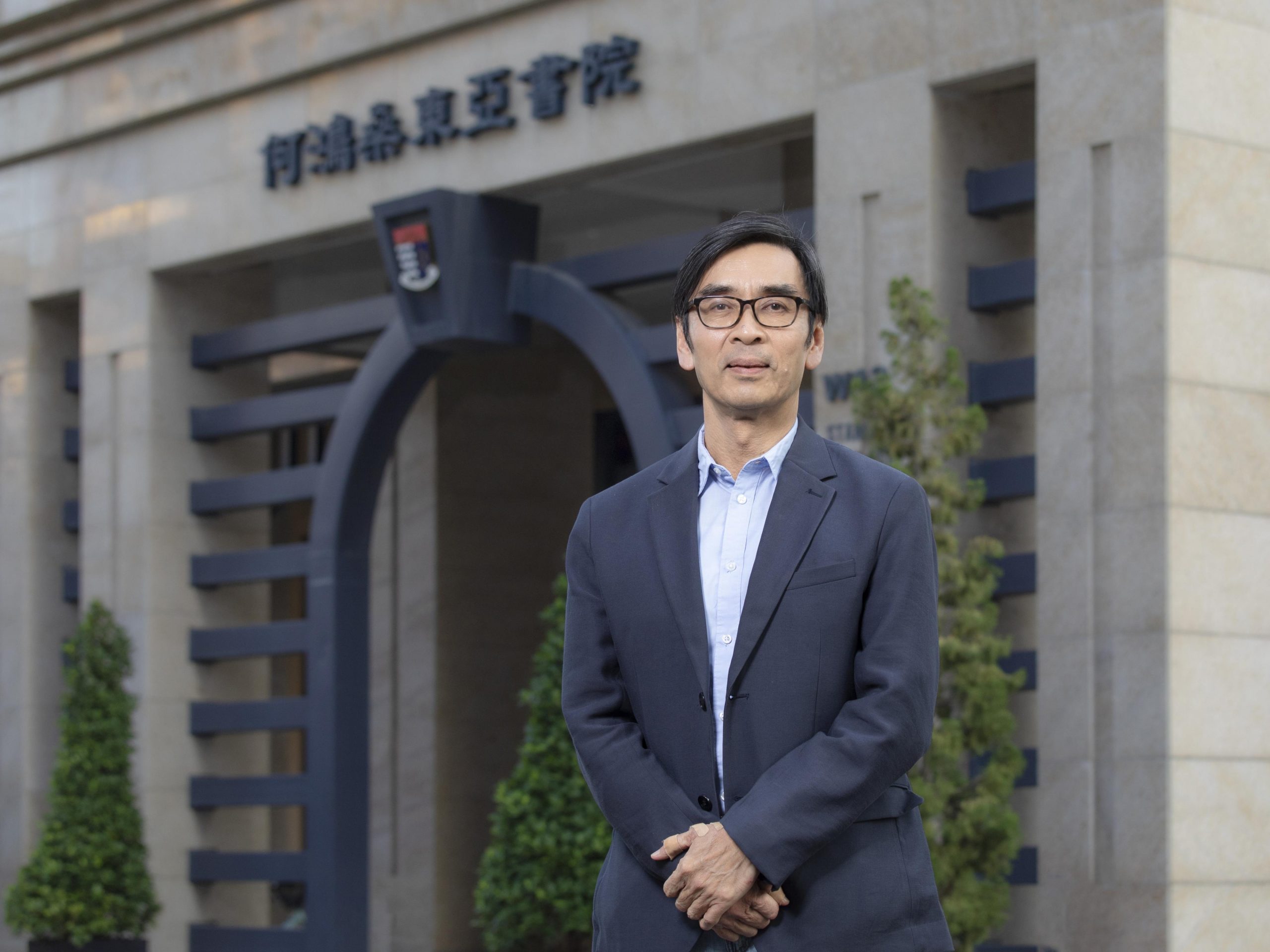
Prof Iu Vai Pan
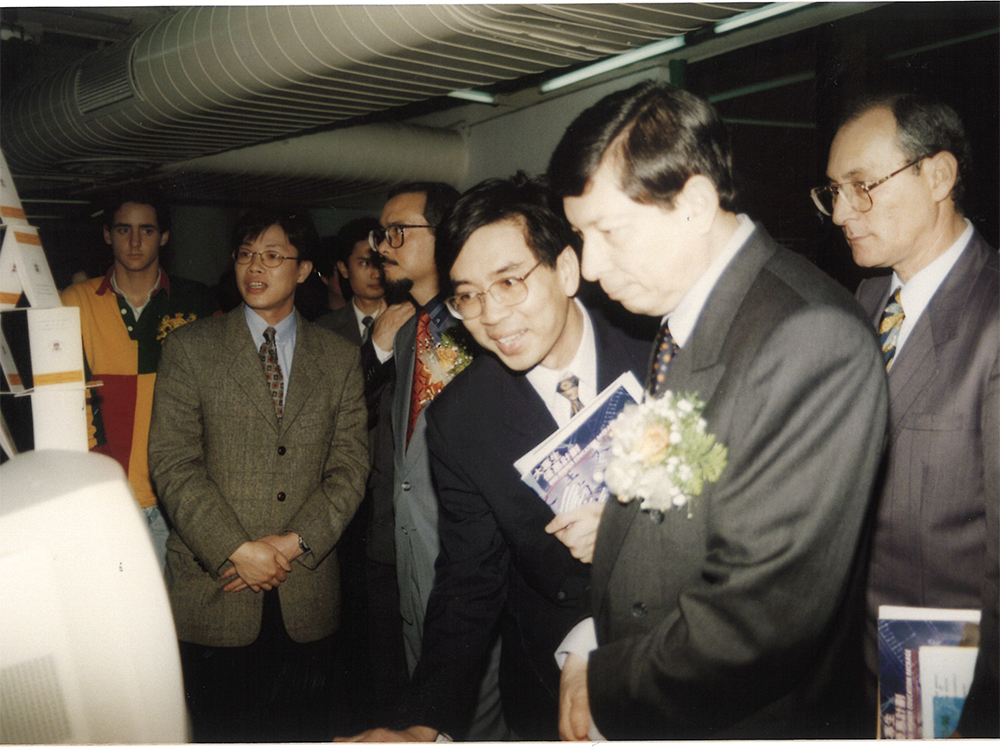
Prof Iu Vai Pan reports the university’s technological achievements to Dr Jorge Rangel, then secretary for public administration, education and youth of Macao.
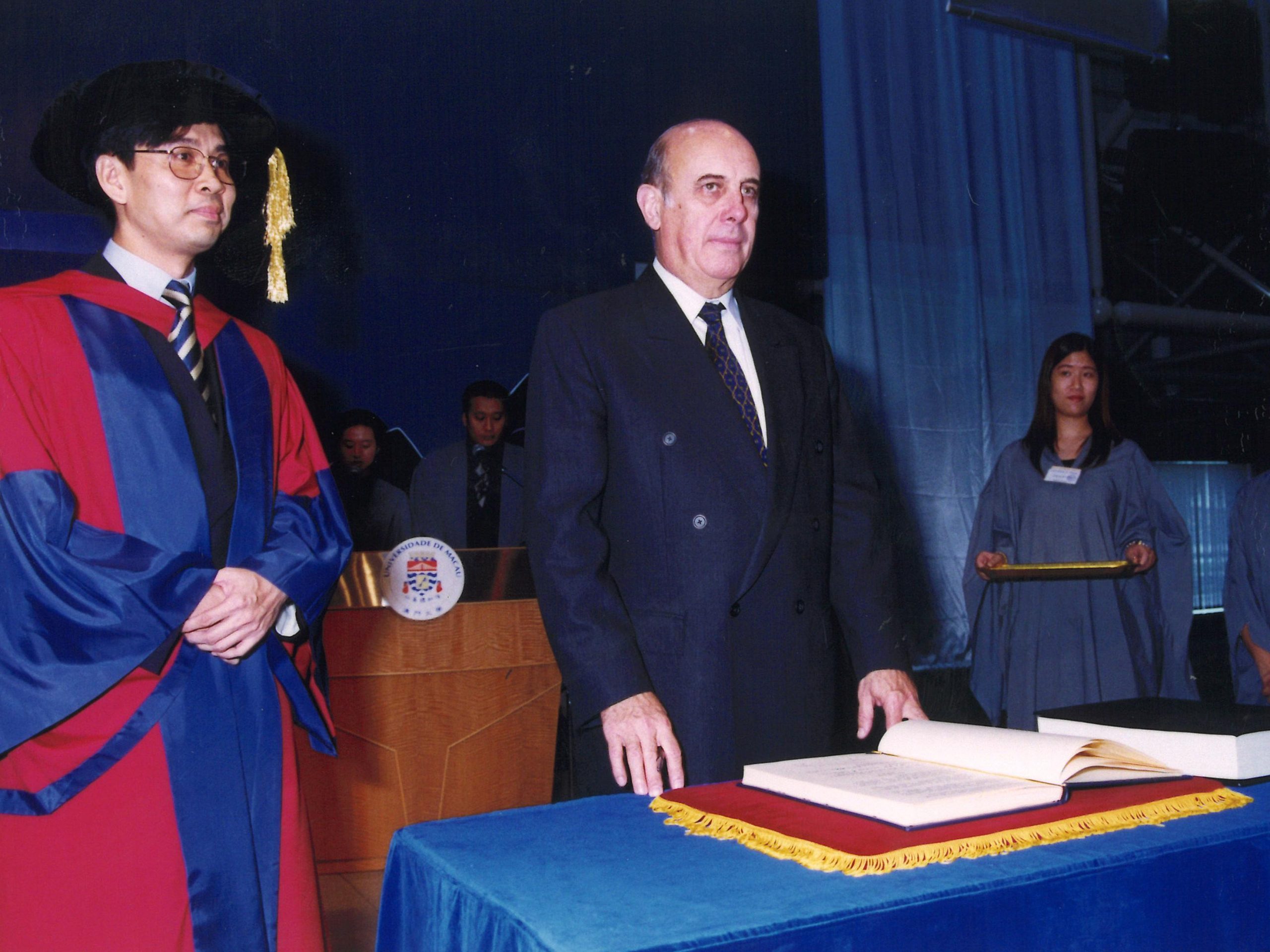
Prof Iu Vai Pan (left) is appointed as the rector of the University of Macau by the then governor of Macao, Vasco Joaquim Rocha Vieira (centre), in August 1999.
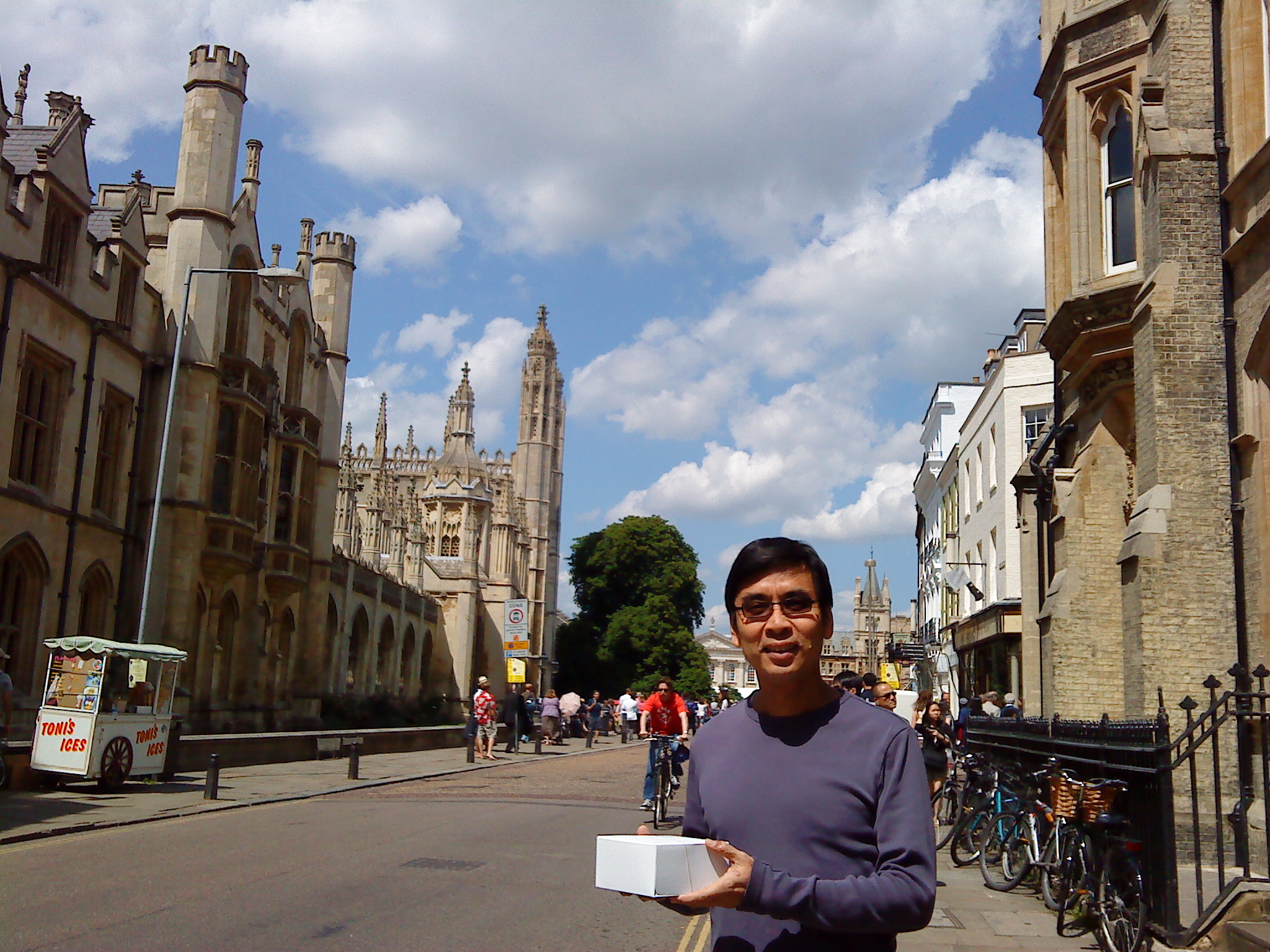
Prof Iu Vai Pan at the University of Cambridge as a visiting scholar
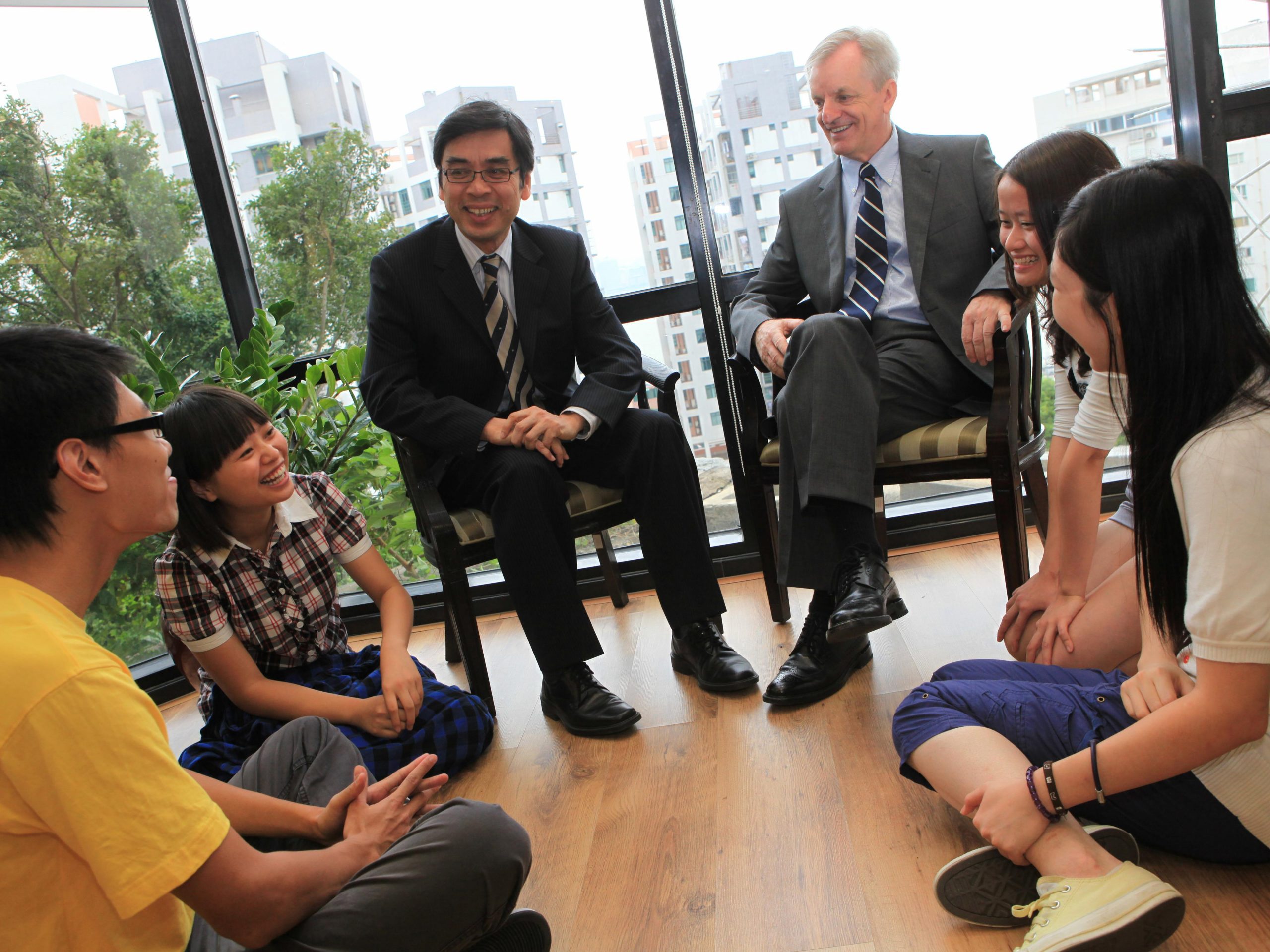
Prof Iu Vai Pan (3rd from left) and Prof George Watt, founding master of the Henry Fok Pearl Jubilee College, have a conversation with the students.
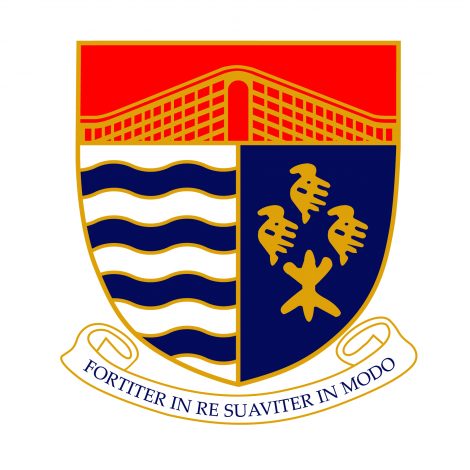
The emblem of the Stanley Ho East Asia College
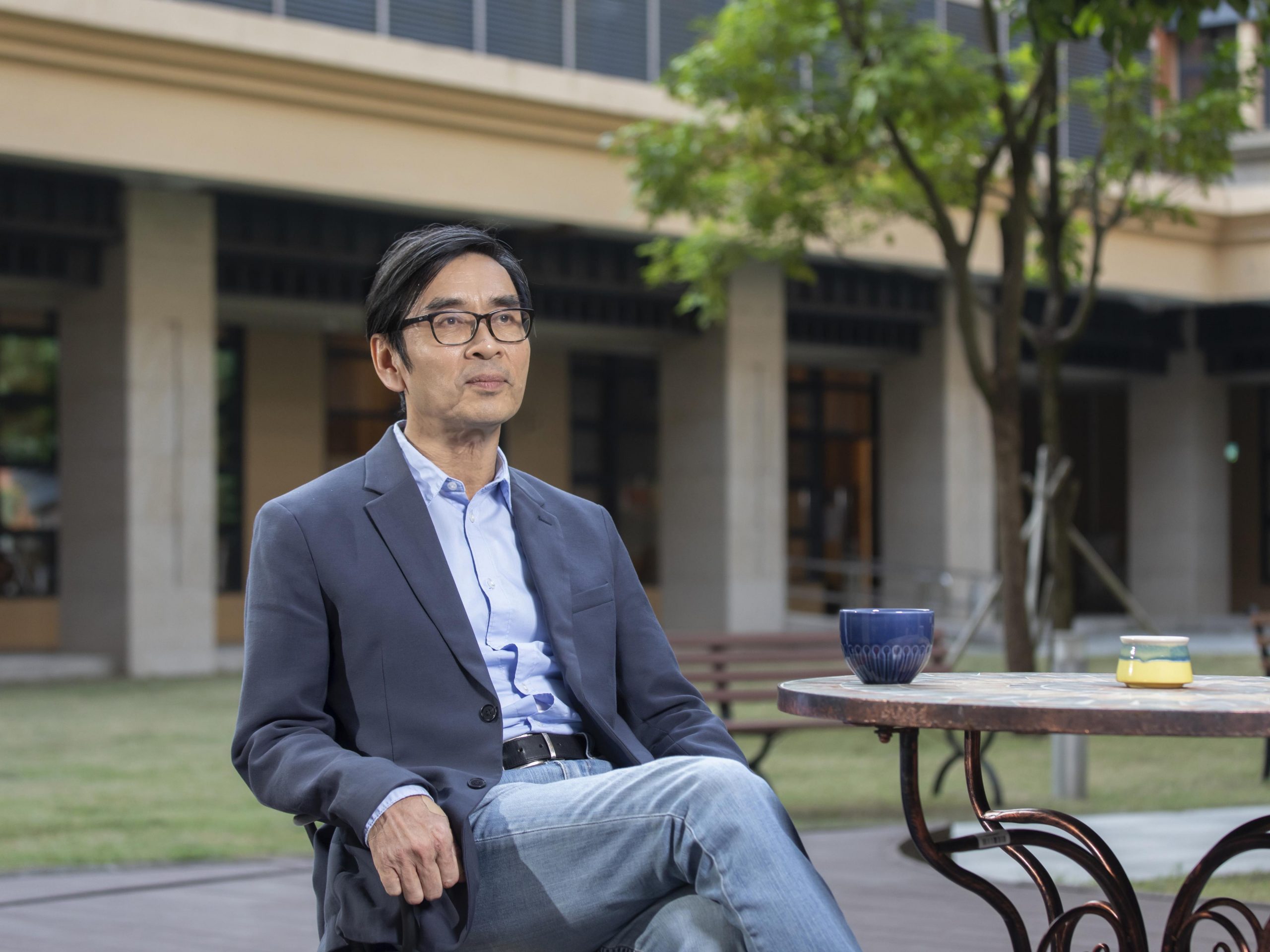
Prof Iu Vai Pan enjoys sitting in the courtyard of the college with a cup of hot coffee made by students
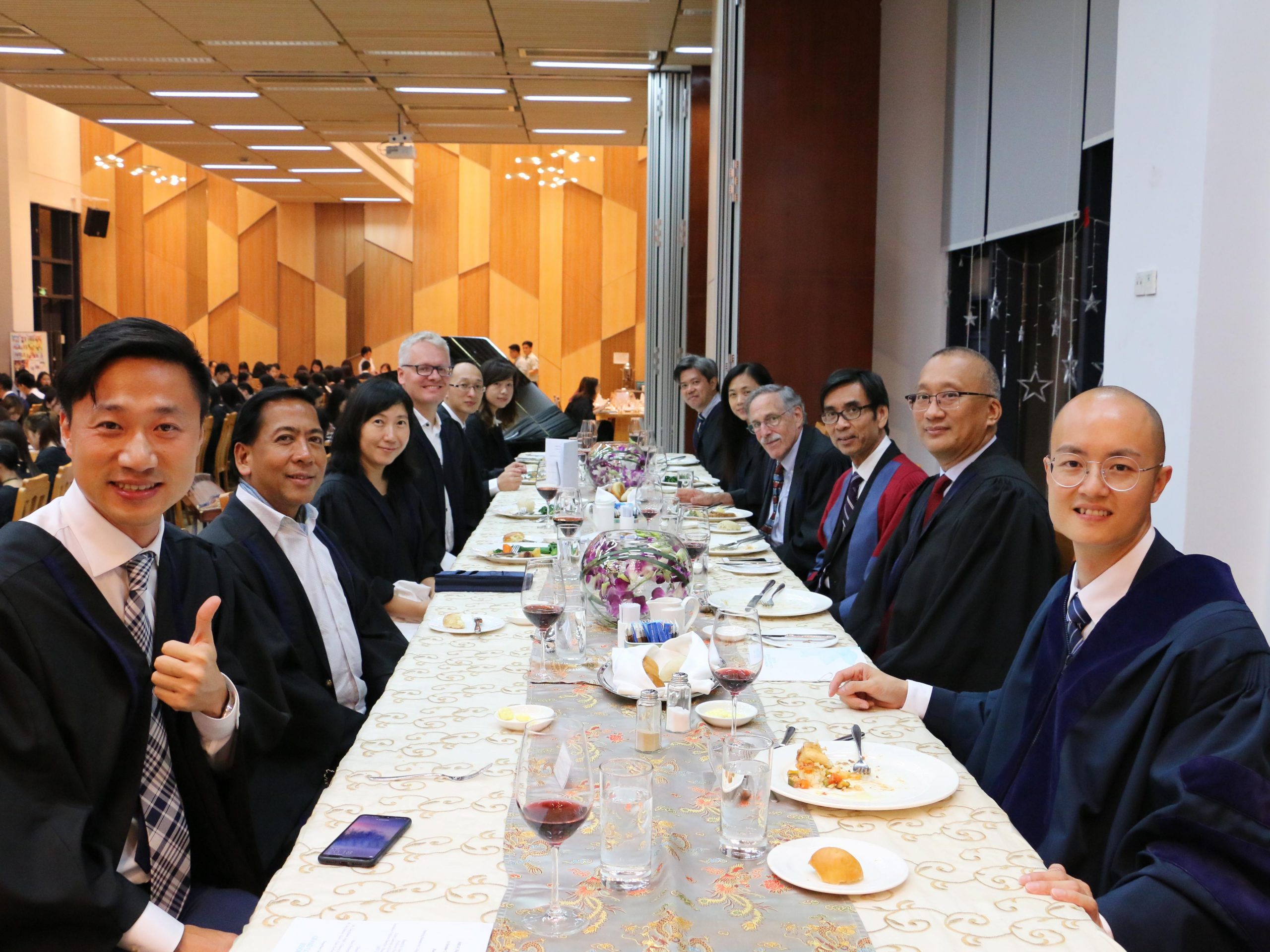
A high table dinner at Stanley Ho East Asia College
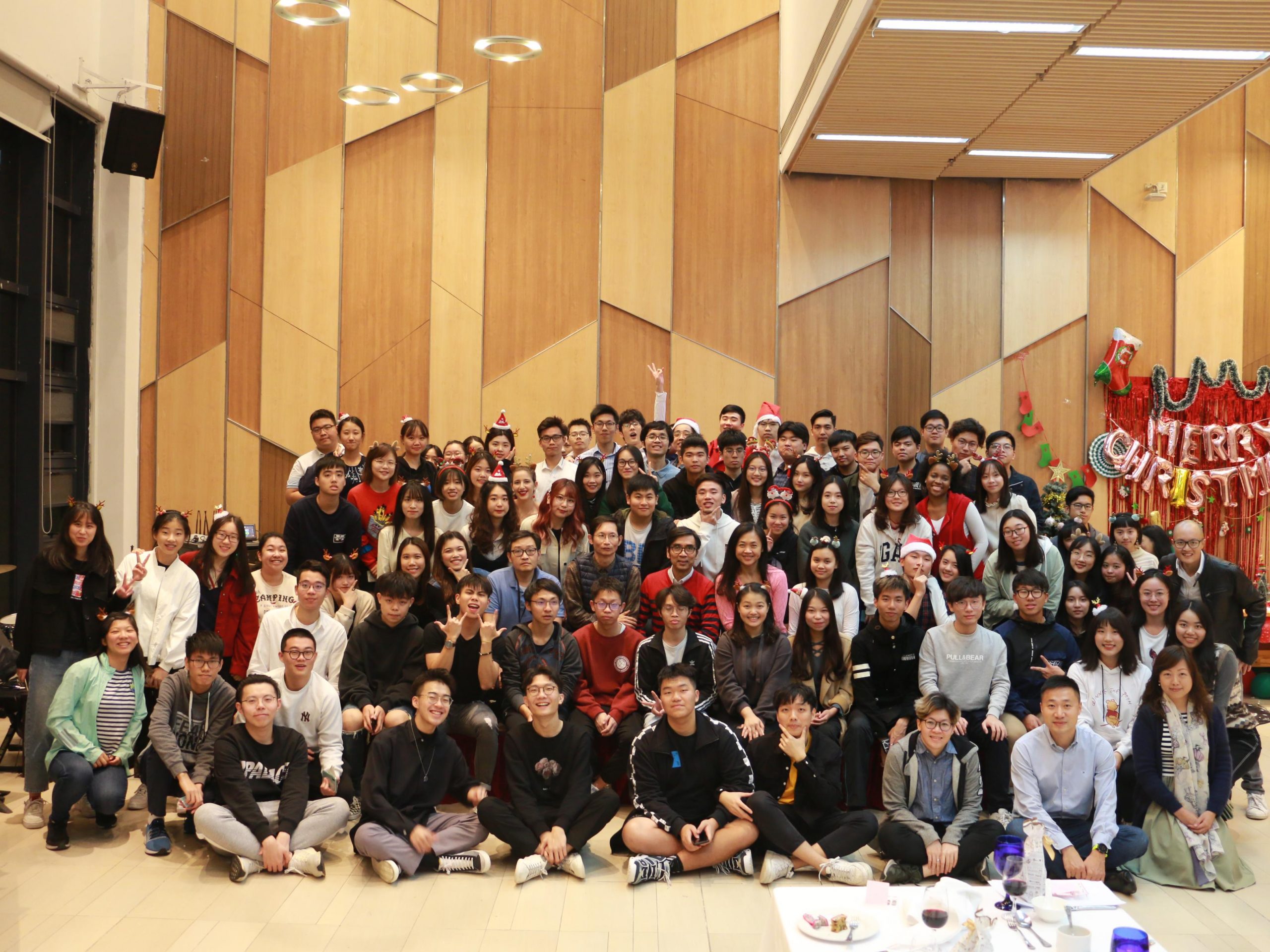
Prof Iu Vai Pan with students in the Stanley Ho East Asia College
